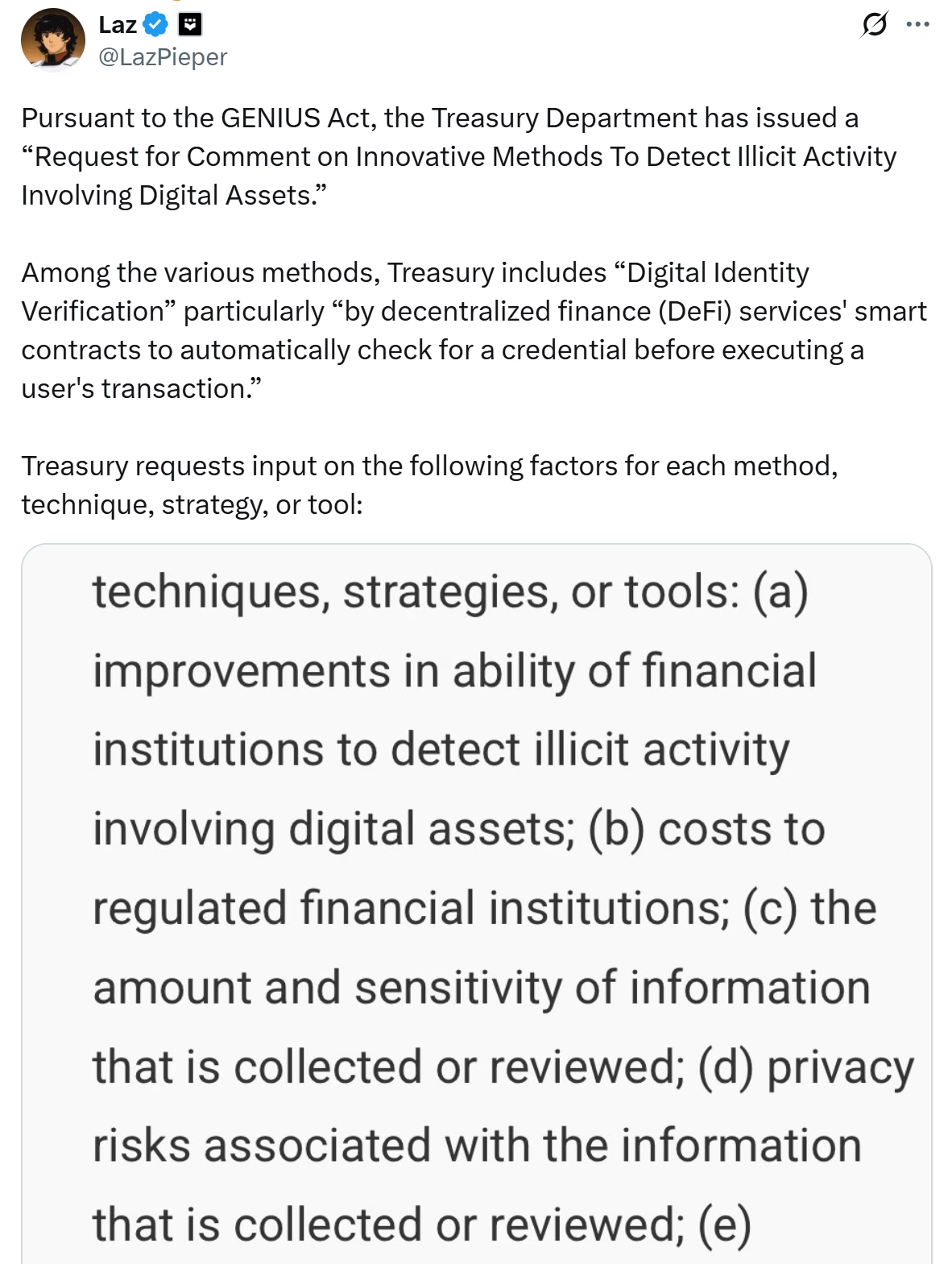The US Treasury is exploring whether identity checks should be built directly into decentralized finance (DeFi) smart contracts, a move critics warn could rewrite the very foundations of permissionless finance.
Last week, the agency opened a consultation under the Guiding and Establishing National Innovation for US Stablecoins Act (GENIUS Act), which was signed into law in July. The Act directs the Treasury to evaluate new compliance tools to fight illicit finance in crypto markets.
One idea was embedding identity credentials directly into smart contracts. In practice, this would mean a DeFi protocol could automatically verify a user’s government ID, biometric credential, or digital wallet certificate before allowing a transaction to proceed.
Supporters argue that building Know Your Customer (KYC) and Anti-Money Laundering (AML) checks into blockchain infrastructure could streamline compliance and keep criminals out of DeFi.
Fraser Mitchell, Chief Product Officer at AML provider SmartSearch, told Cointelegraph that such tools could “unmask the anonymous transactions that make these networks so attractive to criminals.”
“Real-time monitoring for suspicious activity can make it easier for platforms to mitigate risk, detect and ultimately prevent money launderers from using their networks to wash the proceeds from some of the world’s worst crimes,” Mitchell said.
Related: GENIUS Act to spark wave of ‘killer apps’ and new payment services: Sygnum
DeFi ID checks: protect data or risk surveillance?
Mitchell acknowledged the privacy tradeoff but argued that solutions exist. “Only the necessary data required for monitoring or regulatory audits should be stored, with everything else deleted. Any data that is held should be encrypted at row level, reducing the risk of a major breach.”
However, critics say the proposal risks hollowing out the core of DeFi. Mamadou Kwidjim Toure, CEO of Ubuntu Tribe, compared the plan to “putting cameras in every living room.”
“On paper, it looks like a neat compliance shortcut. But you turn a neutral, permissionless infrastructure into one where access is gated by government-approved identity credentials. That fundamentally changes what DeFi is meant to be,” Toure told Cointelegraph.
He warned that if biometric or government IDs are tied to blockchain wallets, “every transaction risks becoming permanently traceable to a real-world person. You…
Click Here to Read the Full Original Article at Cointelegraph.com News…
